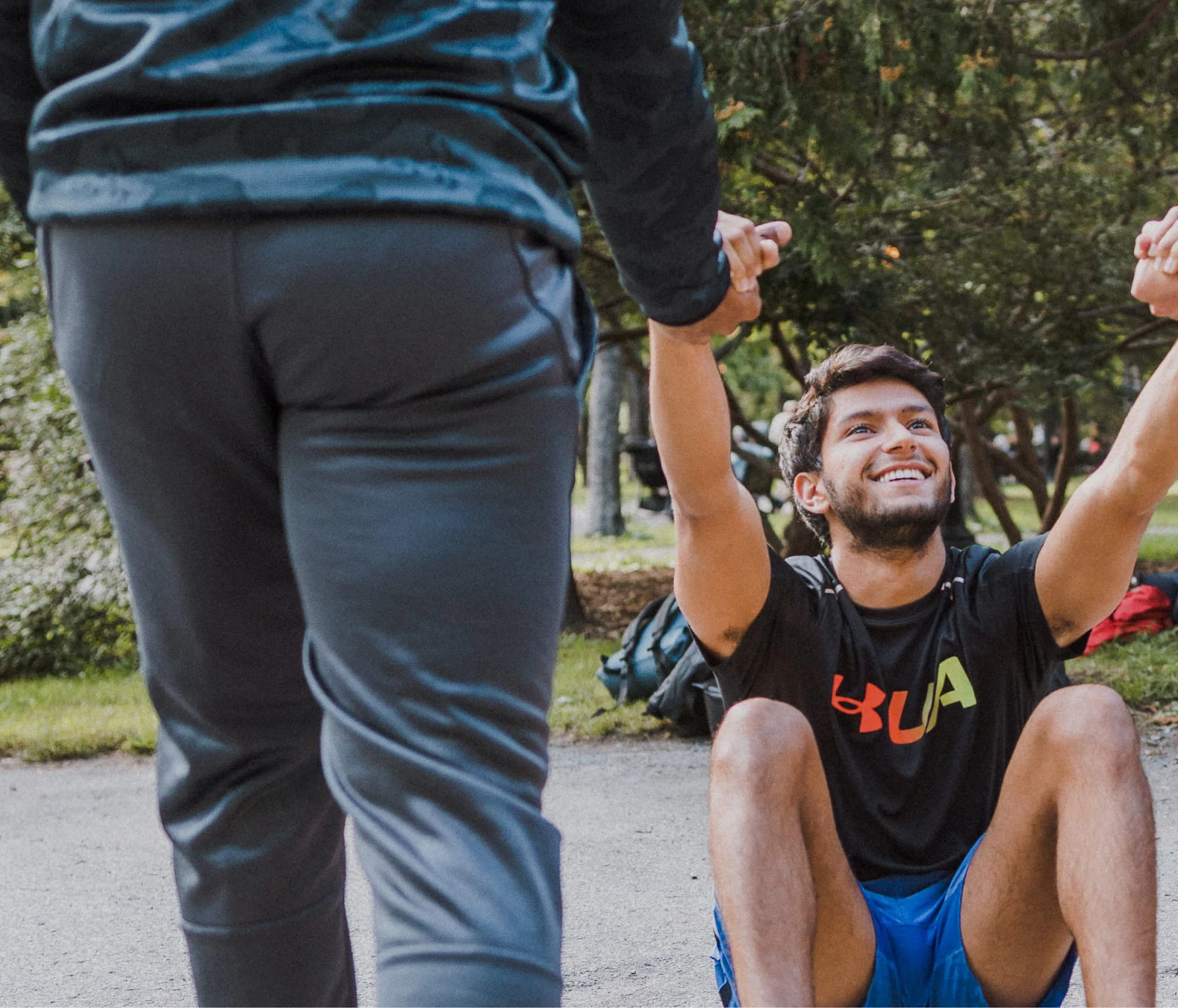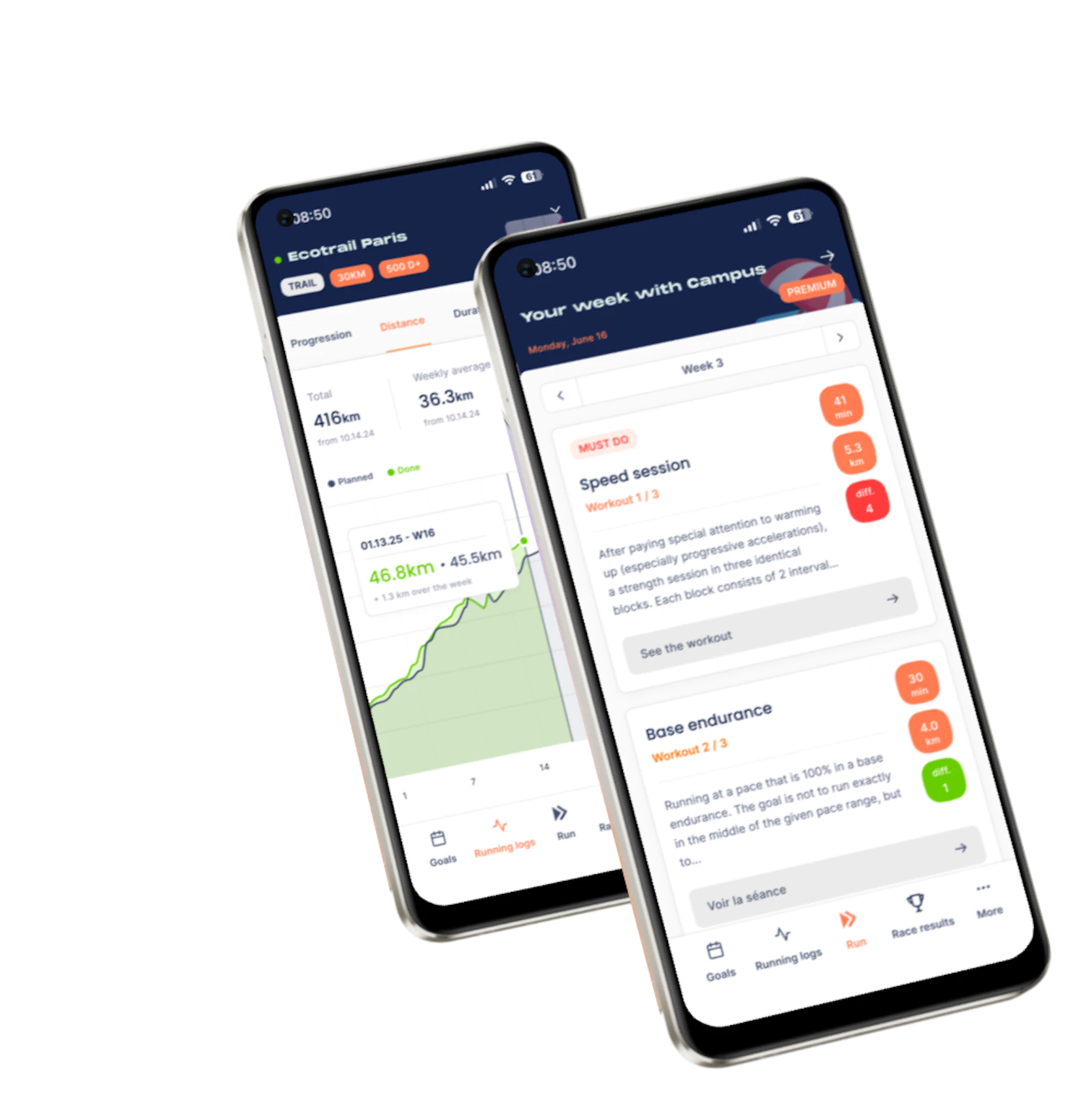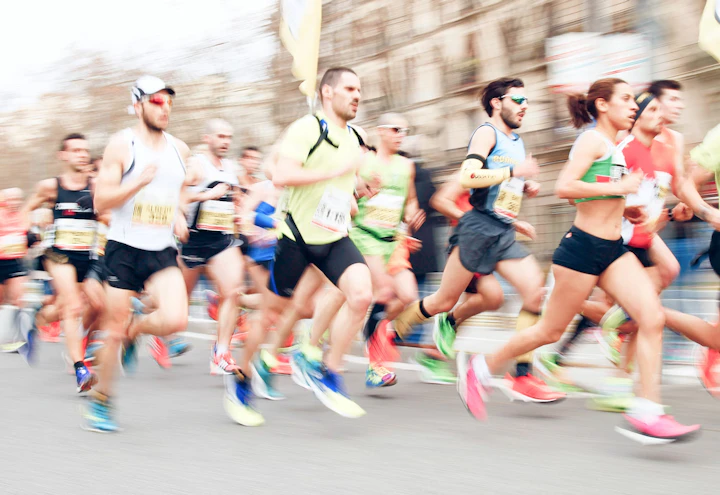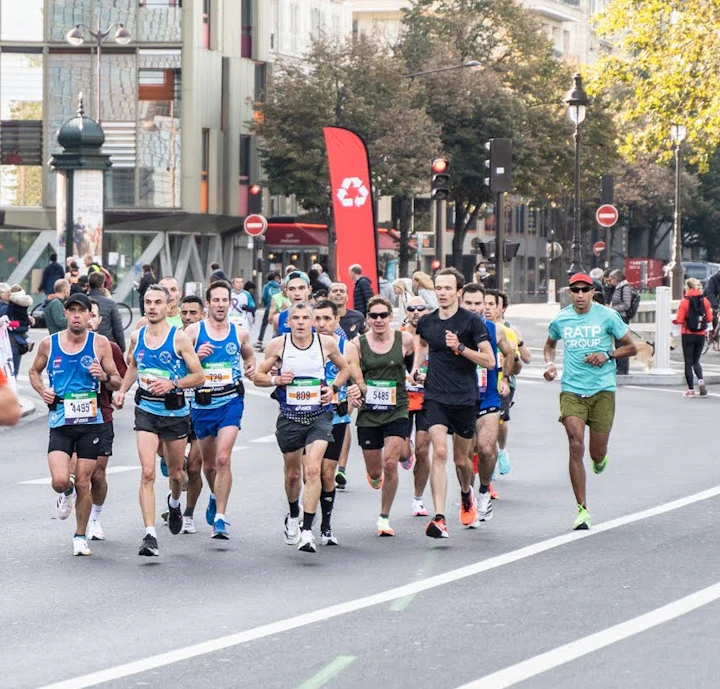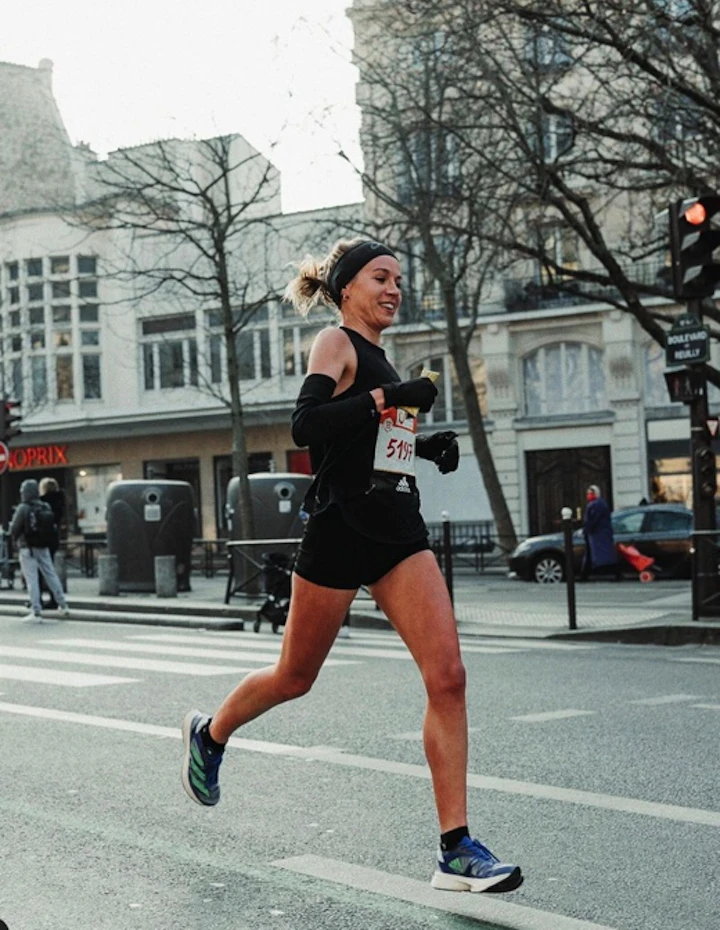What is the average time to finish a half-marathon in running?
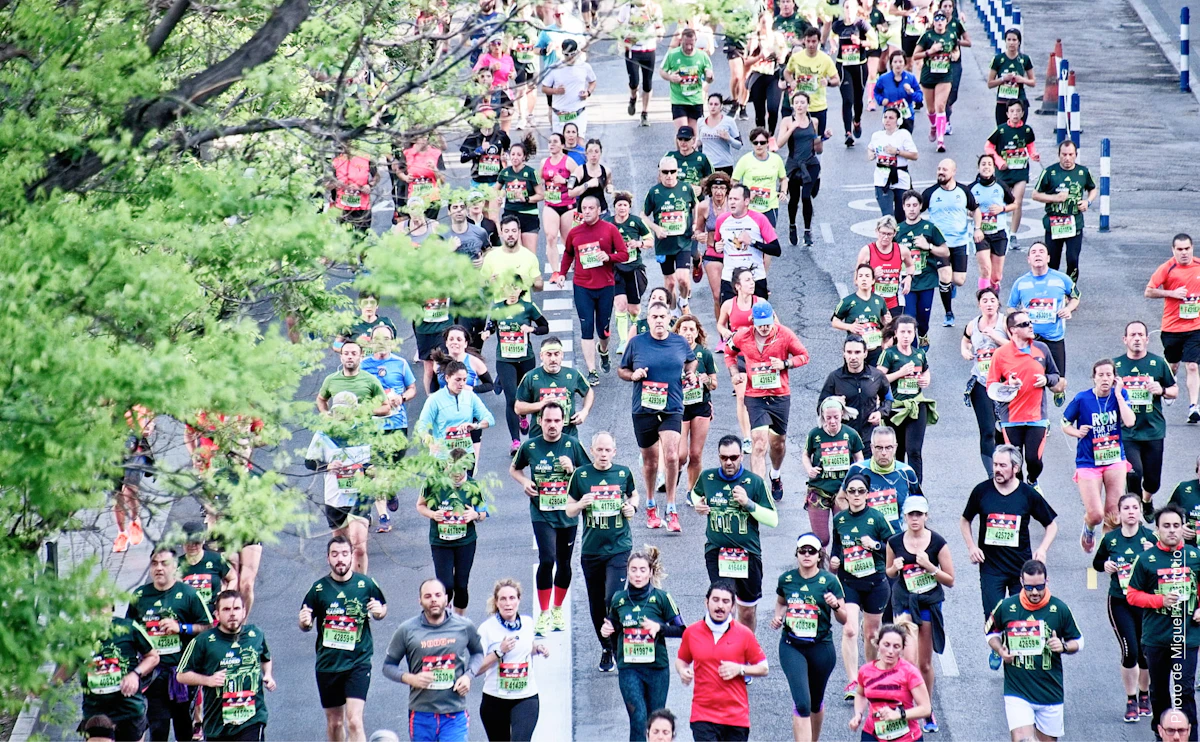
9 min read
Summary
What is the average time for runners on the half-marathon?
The average time across both genders
The average time for women
The average time for men
What is the time for half-marathon runners in France?
Median times of half-marathons in France
What factors can impact your time achieved on the half-marathon?
Your physical condition
Your gender
Your age
Is it difficult to run a half-marathon?
What is a "good" time on a half-marathon?
How to improve your time on a half-marathon?
Follow an adapted training plan
Well manage your race and split times
The impact of half-marathon preparation
What is the average time of Campus users in a half-marathon?
What is the average pace in a half-marathon race?

Receive advice from our passionate coaches!
It is the most popular distance in France, ahead of the 10 kilometers, marathon, and 5 kilometers. So, if you like the half-marathon, you are part of the majority of French women and men. Many runners appreciate this distance because it offers a good endurance challenge, without pushing too hard on cardio like in a 10 km, and without depleting reserves as in a marathon. Whether you are new to the half-marathon or not, you might be interested in knowing the average times achieved by people of your gender to see where you stand.
What is the average time for runners on the half-marathon?
In 2024, RunRepeat compiled data from 28,000 races organized worldwide over the past 20 years. This represents 35 million results collected.
The average time across both genders
The average time achieved in the half-marathon by all runners of both genders is 2 hours 14 minutes and 59 seconds. 45% of finishers manage to break the two-hour mark. To be among the 10% fastest half-marathoners, you must complete the distance in less than 1h47'10". To be among the 1% fastest, you must finish in under 1h23'59".
The average time for women
The average time for women is 2 hours 24 minutes and 3 seconds on the half-marathon. A woman who finishes in under two hours is among the 20% fastest women on the distance. In under 1h57'01", she is among the 10% fastest. One woman in 100 manages to complete her half-marathon in under 1h35'55".
The average time for men
The average time for men on the half-marathon is 1 hour 59 minutes and 48 seconds. A man who finishes in under two hours is among the 50% fastest men on the distance. In under 1h40'35", he is among the 10% fastest. One man in 100 completes his half-marathon in under 1h18'37".
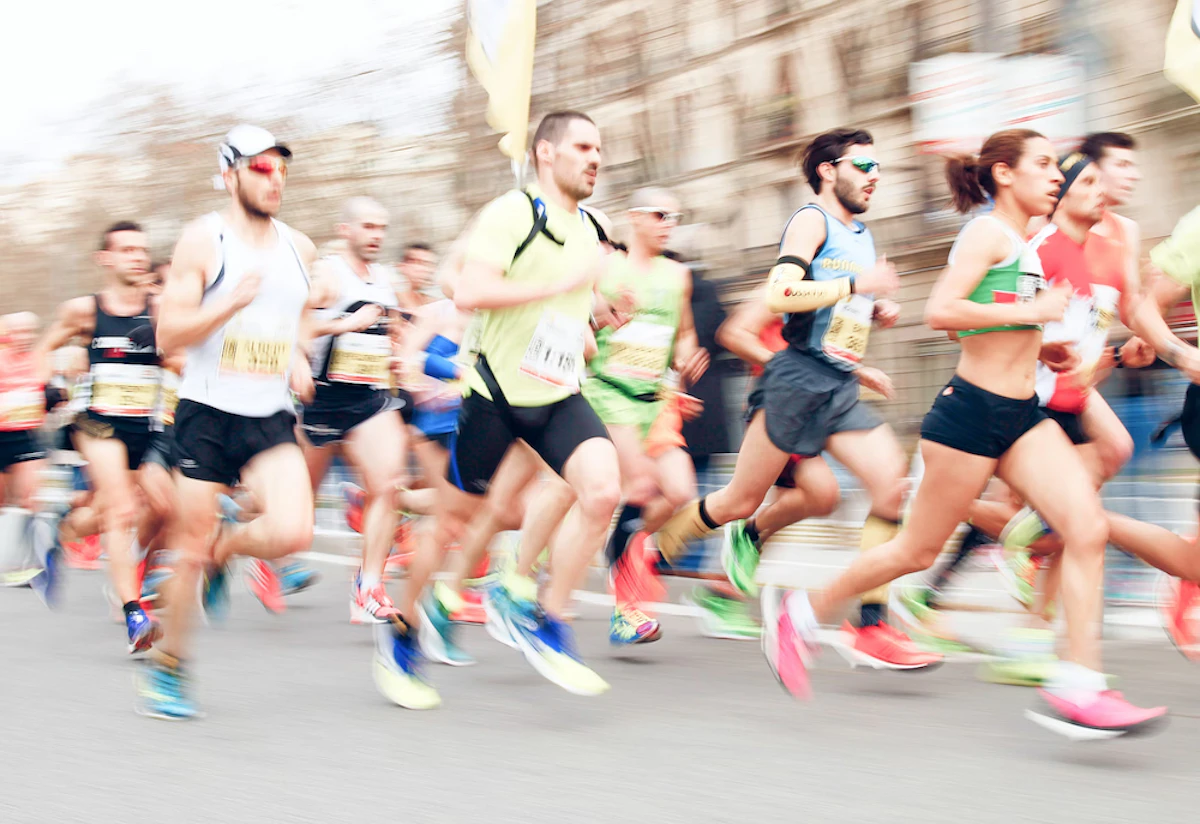
What is the time for half-marathon runners in France?
Median times of half-marathons in France
We can also look at the times achieved in a few French half-marathons. Here, the median time is slightly under two hours, across both genders. Here are a few recent examples:
Lille Half-Marathon 2024: 7,545 finishers. Median time 1h56. 1h28 to be in the Top 10%.
La Rochelle Half-Marathon 2024: 2,900 finishers. Median time 1h54. 1h30 to be in the Top 10%.
Nancy Half-Marathon 2024: 3,673 finishers. Median time 1h53. 1h29 to be in the Top 10%
Nice Half-Marathon 2023: 3,062 finishers. Median time 1h53. 1h30 to be in the Top 10%
The most popular half-marathon in France with its 48,000 finishers, the Harmonie Mutuelle Paris half is not representative in terms of performance. Indeed, the median time in the last edition was 3h43. That's twice as slow as the national average. This can be explained by the presence of many recreational runners and walkers. For many participants in the Paris half, the important thing is not the time but just to have fun and cross the finish line.
If you want to know the half-marathon records, find all the info right here!
What factors can impact your time achieved on the half-marathon?
Your physical condition
Your physical condition is inevitably a very impactful factor in endurance running events. The aim of training is to improve your physical condition and achieve your goals, whether to complete your first half, aim for a good time in your category or beat your personal best on race day. So it’s no surprise that depending on your running history, your fitness level, and training, the target time will not be the same. Your diet before the half-marathon and on race day will also affect your performance.
Your gender
As we saw earlier, gender is a primary factor. The average performance difference between men and women is 20%. As the athletes' level increases, this difference decreases. Thus, the performance gap between the French records for men (59'13" by Julien Wanders) and women (1h08'27" by Mekdes Woldu) drops to 15%. The gap between the men's half-marathon world record (57'31" by Jacob Kiplimo) and the women's (1h02'52" by Letesenbet Gidey) is now only 9%.
Your age
The human body reaches its maximum potential between 20 and 25 years. Ugandan Jacob Kiplimo and Ethiopian Letesenbet Gidey were 21 and 23 years old, respectively, when they set their world records for the distance. Julien Wanders was 22 years old when he broke the French record. Rest assured, that doesn't mean you won't progress if you're over 25, quite the opposite! Apart from elite, age is much less of a limiting factor. Indeed, it will take you many years of practice to reach your full potential. Training will help develop your endurance, your running economy, and improve your times even at advanced ages.
Is it difficult to run a half-marathon?
The half-marathon distance is accessible to a very large majority of runners of all levels. The half is a clever mix of cardio and muscular effort, sprinkled with a good dose of management. Several reasons can explain its popularity. A half-marathon is generally run between its two thresholds, VT1 (Ventilatory Threshold 1) and VT2 (Ventilatory Threshold 2). It's a less uncomfortable breathing zone than in a 10 km, where you push the cardio more.
Also, you feel much less "broken" afterward than after a marathon. A half-marathon causes less muscle, nerve, and hormonal fatigue than a marathon. Recovery is quicker, and it is possible to chain 3 or 4 half-marathons a year, which is highly discouraged for marathons. Training for a half is shorter and less demanding than for a marathon. Unless you're aiming for a high level of performance, preparing for a half doesn't require a lot of mileage. Long runs have less impact than in marathon training. Finally, this format allows you to easily measure your progress throughout the season.
What is a "good" time on a half-marathon?
A good time on a half-marathon is above all a very personal thing. You can always compare your times with runners of your gender and age group to see your level. You can also focus on your own progression. Remember: running is first a challenge against yourself before being a challenge against others. So a good time is your competitive pace, depending on your physical condition level, your preparation and your mindset!
If you're a competitor at heart, the French Athletics Federation sets qualifying standards for the French half-marathon championship. These standards consider age and gender. For example, the maximum time for the senior category (under 35 years) is 1h15'30 for men and 1h45 for women. This standard rises to 1h22'30 for masters 2 men (45-49 years) and 1h52'30 for masters 2 women.
The FFA also offers two scoring grids - one for women, one for men - which allow you to benchmark your performance from the departmental to the international level. This time, there are no more age categories. To integrate these FFA grids at the lowest level, departmental 7, the minimum time is 2h10 for women and 1h55 for men. If you aim for a regional-level performance, you will have to achieve less than 1h42'30 if you are a woman or 1h27 if you are a man. These are great challenges.
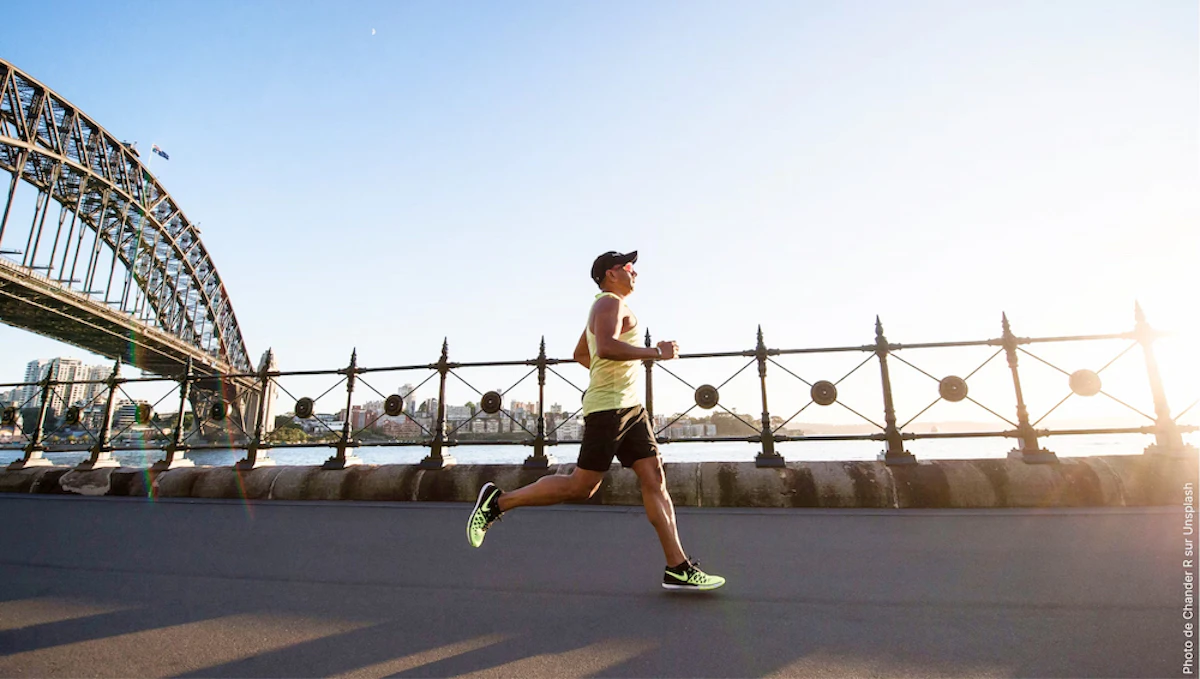
How to improve your time on a half-marathon?
Follow an adapted training plan
Following a structured and level-appropriate training program is the foundation to progress, and from your first half. A good preparation will make you work on different areas, different paces. It includes interval and speed sessions to improve your VMA (Maximal Aerobic Speed) and especially your running economy. Running economy represents the energy you spend at a given speed, a bit like a car's fuel consumption. It's a major predictor of performance. With equal VMA, improving your running economy will greatly impact your half-marathon performances. This running economy will progress through high intensity intervals, improving your running technique, and, if possible, through weight training with heavy loads and/or plyometric exercises. Finally, a good half-marathon plan will include jogging and long runs. The maximum duration of long runs is close to the time you aim for on race day.
Well manage your race and split times
Good race management is essential to maximize your performance level. The common mistake is starting too fast and running out of energy in the second part of the race. If you're new to the distance, start slowly in the first kilometers and stay comfortable for the first two-thirds of your half, until 14 or 15 kilometers, well set on your split times. The pivotal moment often occurs between the 15th and 18th kilometer. This is when you have to hold on to avoid slowing down. Then, your brain will take over. There are only 3 kilometers left. The hardest part is over. You can give it your all!
The impact of half-marathon preparation
What is the average time of Campus users in a half-marathon?
In the big running survey 2024, Campus analyzed data from 12,000 randomly chosen runners among their users.
The average half-marathon time in 2023 is 1h47. We can observe that this time is lower than the average and median times usually observed in half-marathons, whether globally or in France. The average time is 1h45 for men and 2h02 for women.
The time gap between men and women decreases as the distance extends. The gap is 28% over 10 kilometers, 16% in the half-marathon, and 13% in the marathon.
What is the average pace in a half-marathon race?
The average time of 1h47 achieved by Campus users in 2023 corresponds to a pace of 5'04'' per kilometer. The average pace is 4'58'' for men and 5'46'' for women. You can determine paces according to race time using the Campus pace calculator.
If you want to start or progress in this beautiful distance that is the half-marathon, we invite you to discover Campus half-marathon training plans. Our plans are individualized based on your profile, your running history, and your goal. Each plan is scalable and offers you a good variety of sessions. So that pleasure remains at the heart of your practice.


